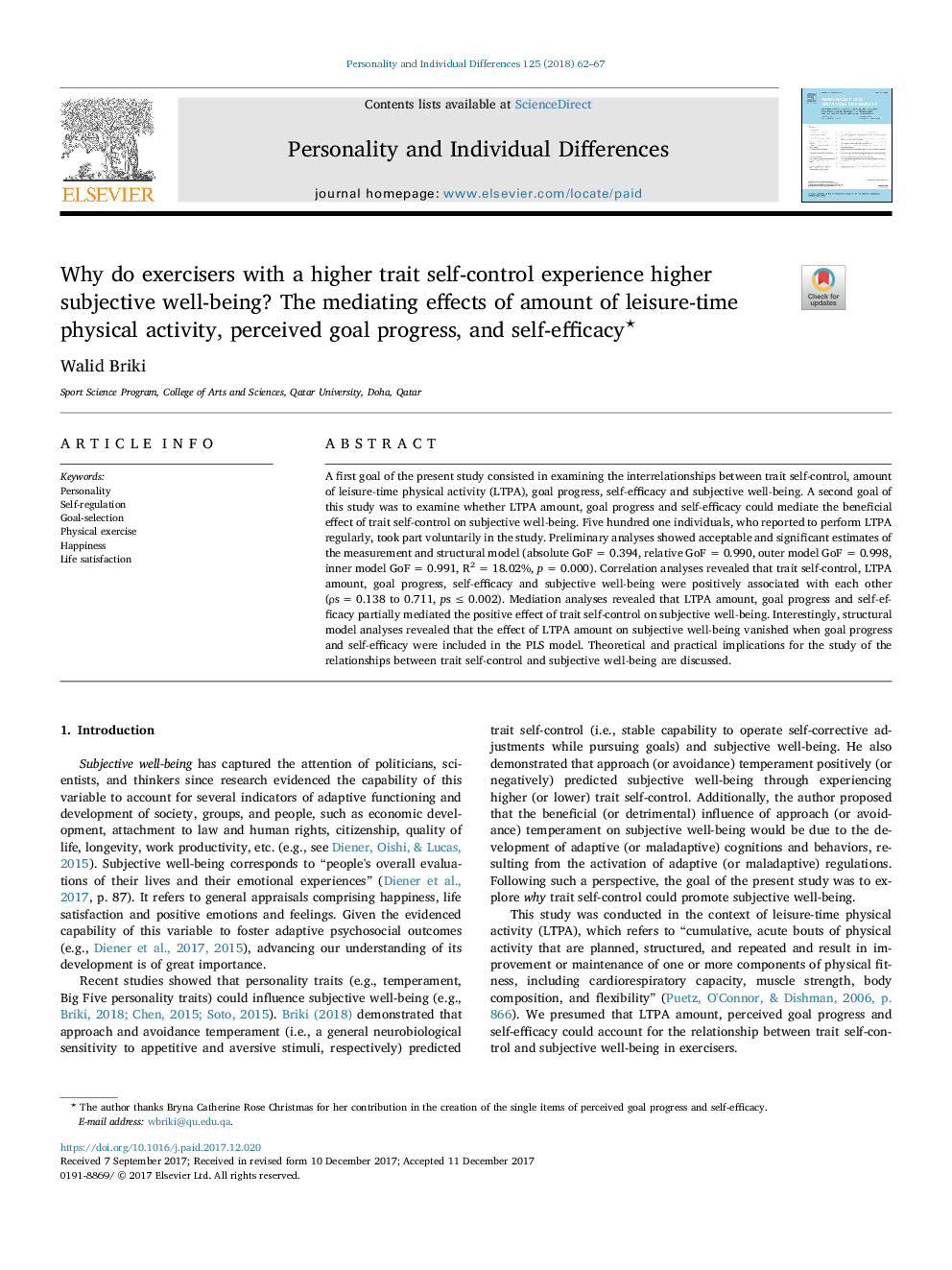ترجمه فارسی عنوان مقاله
چرا تمرینکنندگان با کنترل صحیح تر از خود، تجربه رفاه ذهنی بیشتری دارند؟ اثرات واسطه ای از میزان فعالیت فیزیکی اوقات فراغت، پیشرفت هدف درک شده و خودکارآمدی
عنوان انگلیسی
Why do exercisers with a higher trait self-control experience higher subjective well-being? The mediating effects of amount of leisure-time physical activity, perceived goal progress, and self-efficacy
| کد مقاله | سال انتشار | تعداد صفحات مقاله انگلیسی |
|---|---|---|
| 121720 | 2018 | 6 صفحه PDF |
منبع

Publisher : Elsevier - Science Direct (الزویر - ساینس دایرکت)
Journal : Personality and Individual Differences, Volume 125, 15 April 2018, Pages 62-67
ترجمه کلمات کلیدی
شخصیت، خود تنظیم انتخاب هدف، تمرین فیزیکی، خوشبختی رضایت از زندگی،
کلمات کلیدی انگلیسی
Personality; Self-regulation; Goal-selection; Physical exercise; Happiness; Life satisfaction;

